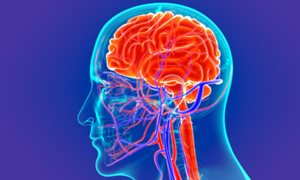
Lieke Jäkel and Anna de Kort, both PhD students with Marcel Verbeek, and neurologists Floris Schreuder and Karin Klijn performed a systematic review and meta-analysis on the prevalence of Cerebral Amyloid Angiopathy (CAA) in several populations. The study is published in Alzheimers and Dementia, on May 31st 2021.
For the current study, 170 publications were scrutinized and analyzed, comprising publications using either a neuroimaging or a neuropathological approach. CAA is associated with cognitive dysfunction and intracerebral hemorrhage, and linked to immunotherapy-related side-effects in Alzheimer’s disease (AD). Given ongoing efforts to develop AD immunotherapy, accurate estimates of CAA prevalence are important. In this review, it is concluded that prevalence is high in AD (48%) and substantial in the general population (23%) when neuropathological examination is possible. In contrast, however, CAA could only be demonstrated in one third (population) to one half (AD patients) of the subjects when neuroimaging was applied.
This study demonstrates that the prevalence of CAA in the general population and AD is significant, but that current diagnostic techniques fall short in its identification, calling for more sensitive biomarkers for CAA. This is particularly relevant with the very recent conditional approval of anti-amyloid antibody aducanumab for treatment of AD, the side-effects of which are strongly associated with CAA.
Publication
Lieke Jäkel, Anna M. De Kort, Catharina J.M. Klijn, Floris H.B.M. Schreuder, Marcel M. Verbeek. Prevalence of cerebral amyloid angiopathy: A systematic review and meta-analysis (2021), Alzheimer’s and Dementia.
Related news items

Milk fat to attenuate obesity-related neurological co-morbidities
18 November 2021 The use of lipids to attenuate co-morbidities of obesity may sound paradoxical. However, it has shown to be particularly relevant in the fight against a less familiar co-morbidity of obesity, as it can induce alterations in white matter tracks, neuroinflammation and increases the risk of dementia. go to page
Early stage biomarker for Alzheimer's disease
4 November 2021 Researchers from the translational metabolic lab and department of neurology, in collaboration with researchers from University of Barcelona, set out to research a new biomarker in cerebrospinal fluid called “neuroleukin” for Alzheimer's disease. go to page
Palliative care for people with Parkinson’s Disease and their family Caregivers Current state of affairs
7 October 2021 Advanced stage Parkinson’s disease can cause a variety of symptoms, for which palliative care can be beneficial, though research from the point of view of patients in later stages is still rare. Radboudumc researchers therefore placed their patients perspectives at the center of their recent study. go to page
Radboudumc to lead research team into tackling future pandemics NWO funds complexity research on pandemics
5 August 2021 The Radboudumc is going to lead a study on how to deal with future pandemics, together with Radboud University and the University of Amsterdam. Rick Quax from the Informatics Institute/IAS is involved in this project. go to page

